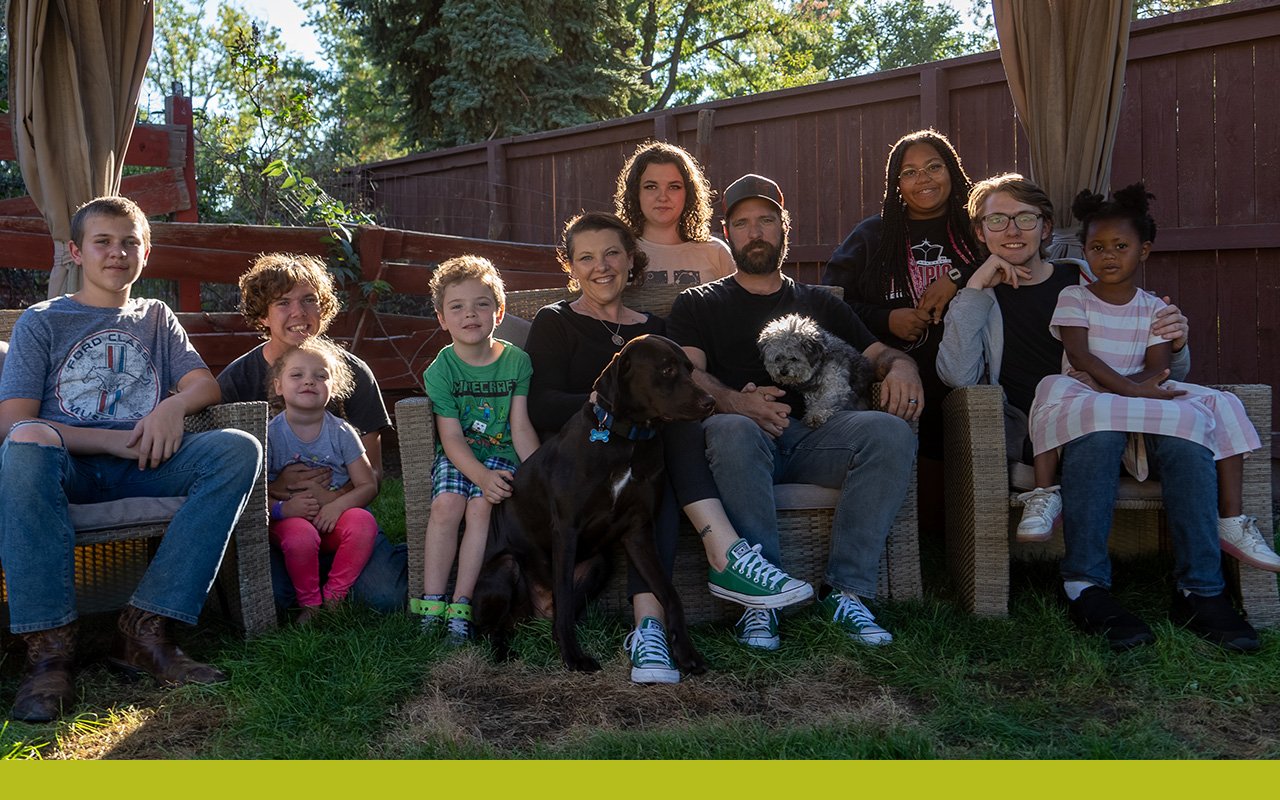Adoption FAQs
Adoption is an emotional and time-intensive process for families, and you probably have many questions about adopting from foster care.

The Answers to Your Questions
There are three types of adoption. All of them involve home studies, background checks, paperwork and long waits and there is no guarantee of being matched with a child.
- Adoption from the foster care system
- International adoption
- Private adoption
Colorado is committed to inclusion. There are no restrictions on who can adopt based on race, ethnicity, religion, sexual orientation, gender identity or expression or marital status. In order to adopt a child or youth who is in foster care, you must first become a foster parent.
- You can be single, married or have a domestic partner.
- You can own or rent a home, condo or apartment of any size, but you must have room for a child.
- You can work inside or outside the home. Couples with both partners working outside the home are also eligible to be foster parents.
- You must be at least 21 years of age.
- You must have sufficient income to support your family.
- You must be able to physically care for a child or youth.
- You must pass child abuse and criminal background checks required by state and federal laws.
- You must be able to work with a treatment team and be willing to go to ongoing training.
- You must be either a U.S. citizen or a legal resident with an Individual Taxpayer Identification Number (ITIN) number.
Yes. While the numbers change all the time, there are about 400 kids in Colorado who are waiting for an adoptive family. Visit the Colorado Heart Gallery to learn about many of these children.
You are never too old to need a family. Even older kids long for an adoptive family to call their own.
Adoption from foster care has little to no cost.
Adoptions of children and youth from U.S. foster care are legally binding agreements that do not occur until the rights of all parents have been legally terminated by a court of law. It’s very rare that an adoption is challenged in court by a child or youth’s birth relative. More than 98 percent of legally completed adoptions remain intact.
You DO NOT have to live in Colorado in order to adopt a child or youth who lives in Colorado.
- You must be approved for adoption by a licensed adoption agency in your state. Colorado laws require that you work with an agency (not an individual or an attorney) in your state in order to be considered for adoption in Colorado.
- You must have completed a current fingerprint-based criminal background checks (national and local) as well as state child abuse registries in your state and any state where you have resided during the past five years.
- If your family is chosen to adopt a Colorado child or youth, the Interstate Compact on the Placement of Children will go into effect.
- The caseworker must review your home study and decide whether your family is the best possible adoptive home for the child or youth. There are many factors that go into making this decision, which are specific to the child and your family.
- Once the decision is made (whether positive or negative), you should hear from the young person’s caseworker regarding that decision. If you do not hear from them within a reasonable amount of time, you should contact the caseworker.
By law, both maternal and paternal relatives of young people in foster care are considered the preferred placement for children and youth, as long as they are able to demonstrate they can adequately provide for the child’s safety and well-being. See Colorado Kinship Connection for more details and information.
Military families stationed overseas and within the U.S. are eligible to adopt children from the U.S. foster care system. The Child Welfare Information Gateway has resources available especially for military families.
Adoption assistance is a program that provides assistance to adoptive parent(s) in certain defined and limited ways to provide for the needs of an eligible adopted child or youth. Adoption assistance is intended to help or remove financial or other barriers to the adoption of Colorado children and youth with special needs by providing assistance to the parent(s) in caring for and raising the child or youth. You can learn more about adoption assistance here.
No. According to 19-5-2-6, (1), C.R.S.(2013), only the county department of human/social services or a licensed child placement agency can facilitate an adoption. There needs to be a child placement agency involved in every adoption (except step-parent adoptions) within the State of Colorado. An adoption attorney may assist a client with communication among agencies.
Learn more about starting the process of adoption from foster care.
Didn’t find the answer to your question?
The Colorado Department of Human Services contracts with Raise the Future to answer all questions and help Coloradans get started fostering or adopting in Colorado. If you aren’t sure about how to get started or just want to ask more questions, don’t hesitate to reach out.